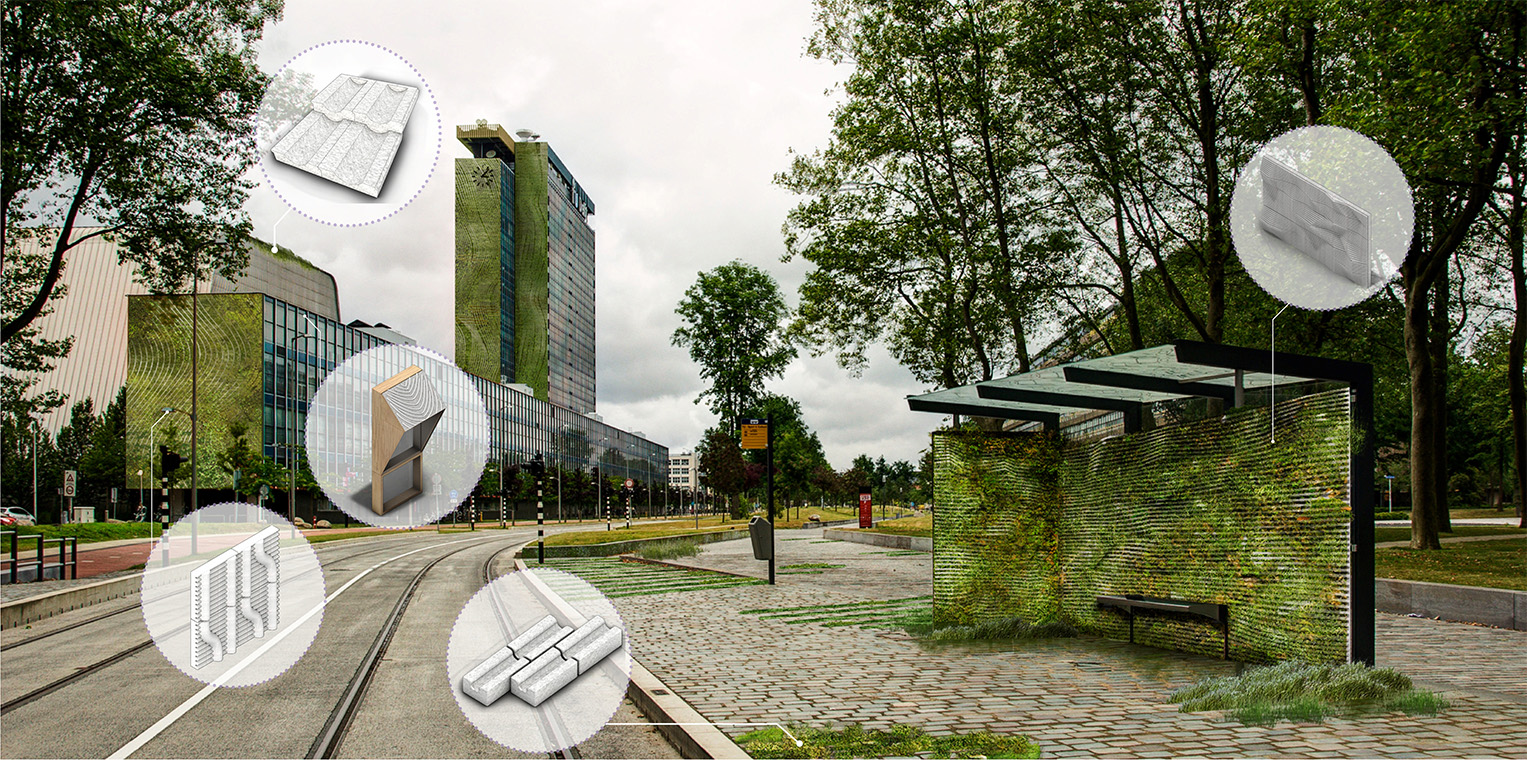Georgina Giassia
Building Technology Graduation Studio
Bio-host glass: A recycled porous glass foam, developed for bioreceptive applications in the urban environment
Mitigation strategies for urban resiliency demand a new design philosophy for construction with innovative materials that halt the depletion of natural resources. Glass production for different industries highlights the urgency for the valorisation of the landfilled waste stream produced in immense quantities. This, in combination with bioreceptivity, creates an extremely promising set of material properties related to opaqueness and porosity, which in glass recycling would be considered as a major flaw by the industry. Bio-host glass is a new type of glass foam with an engineered microstructure to stir moss growth. Since water content is a mandatory condition for bio-colonization, this experimental research used a series of tests to investigate the hydraulic performance of the produced samples by different types of glass waste. To showcase its vast applicability as a low-cost and zero-maintenance solution for greenery, re-designed products under the new bioreceptive guidelines can be manufactured out of the revealed glass foams’ porosity gradient, depending on the material specifications required in each product development. Thus, a bio-diverse microclimate is formed by letting nature take over unexploited urban surfaces and façades.
